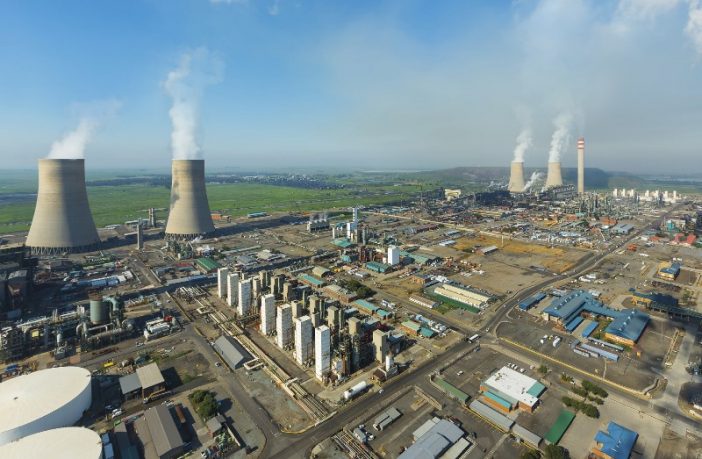- Following the National Air Quality Officer declining Sasol’s application, in terms of Clause 12A of the Minimum Emission Standards, to be regulated on an alternative emission load-basis for the sulphur dioxide emissions from the boilers at its Secunda Operations’ steam plants from 1 April 2025 onwards, Sasol has submitted its appeal of the decision to the Minister of Forestry, Fisheries and the Environment, as provided for in the National Environmental Management Act of 1998.
- The appeal process allows the Minister to consider Sasol’s 12A application afresh.
For the fiscal year through June 2022, Sasol’s Secunda operations produced 137,300 tons of sulfur oxides and 49.2 million tons of climate warming carbon dioxide, or its equivalent, according to the company’s sustainability report. That’s more greenhouse gases than either Norway or Portugal!
In their most recent company trading statement, Sasol said it has introduce a R35.3 billion impairment on the Secunda plant as a result of “cost assumptions and a revised production profile” based on its plans to reduce pollution from the site. Sasol’s Secunda plant is the worlds biggest emitter of greenhouse gases. The emissions from the plant exceed the individual totals of more than 100 countries. Read more
As a group, their current emissions reductions roadmap in South Africa would involve turning down boilers, reducing coal use and increasing renewable energy imports to 1200 MW by 2030.
Related news: Shareholders and watchdogs question Sasol’s climate change reporting
Sasol is seeking ongoing compliance, not exemption from regulation
Clause 12A of the MES permits existing plants to be regulated on an alternative emission load, as opposed to the current concentration-based limit (the mass of pollutant per cubic metre of air emitted) specified in the MES. As part of its Clause 12A application, Sasol has proposed an integrated air quality and greenhouse gas (GHG) reduction solution (“integrated emission reduction solution”) to reduce SO2 and GHG emissions by approximately 30% by 2030. This is contingent on SO2 emissions from the boilers at the steam plants of its Secunda Operations being regulated on an alternative load-based emission limit instead of the concentration limit currently being prescribed in the MES from 1 April 2025 onwards.
The group expects to report a decline of between 74% and 84% in basic earnings per share for the year ended in June 2023. Earnings per share will be between R10.26 and R16.49, compared with R62.34 in 2022. Read more
Author: Bryan Groenendaal















